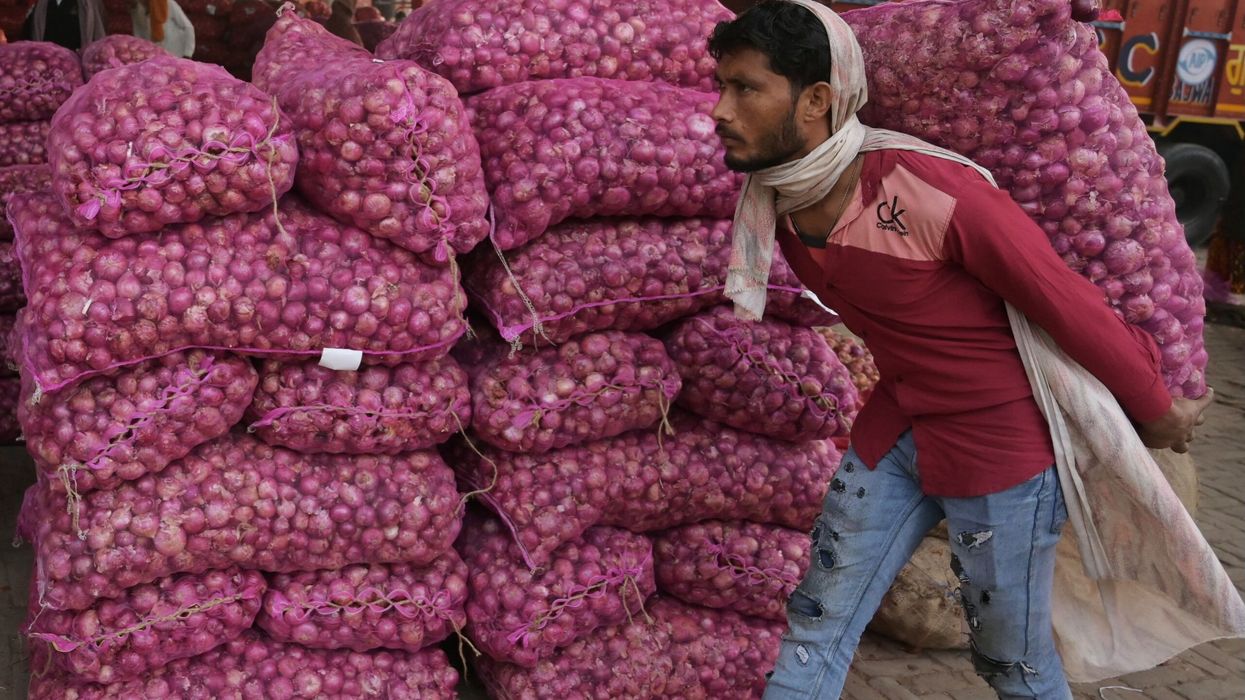INDIA extended its ban on exports indefinitely – a surprise move ahead of a general election and is set to exacerbate high prices in some overseas markets.
India is the world’s biggest exporter of the vegetable and the country imposed the ban in December. It was due to expire on March 31.
Traders anticipated it would be lifted as local prices have more than halved since the export restrictions were implemented and this season’s crop is yielding fresh supplies.
However, the government issued an order late last Friday (22) that the ban will remain in place until further notice.
“The extension is surprising and completely unnecessary, considering the falling prices with rising supplies from the new season crop,” said an executive at a Mumbai-based export firm, who declined to be identified.
Onion prices in some wholesale markets in Maharashtra, the biggest onion producing state, have fallen to `1,200 (£11.40) per 100kg from `4,500 (£42.76) in December, the executive said.
Countries such as Bangladesh, Malaysia, Nepal and the United Arab Emirates rely on imports from India to fill domestic gaps in onion supply and many of those nations have struggled with high prices since the ban.
“India’s move is allowing rival exporters to quote much higher prices since buyers have no choice,” said another executive at an export company.
Traders estimate that India, which has shorter shipment times than China or Egypt for many markets, accounts for more than half of all onion imports by Asian countries. India exported a record 2.5 million metric tonnes of onions in the financial year ended March 31, 2023.




